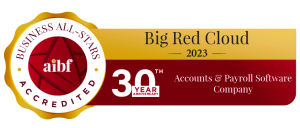There is nothing cost effective when you have a sick employee, especially when you are operating a small business with less than 5 workers. When one worker is sick, it causes productivity to slow down as the remaining employees have to shoulder on more responsibilities. You have to deal with the possibility of lower profits, changed work schedules, and the increased healthcare costs.
The benefits of employee wellness programs
The basic aspect of wellness programmes is that a healthy employee is a happy one. The wellness programme you initiate will give benefits to employees who already take their health seriously as they can reap the additional benefits. For people who were always on the edge of getting more physically fit, the programme gives them that extra push and incentive to finally jump on the fitness bandwagon.
In time, employees soon learn to adopt ways to further enhance and manage their lifestyle, adopting positive strategies focused on total wellness. In addition, the programme can increase the overall positive attitude that an employee has concerning their life. Employees will simple have fewer days where they are out sick, and will show their positive behaviour toward the customers they work with, creating a better business experience. These programmes can also inspire team building skills with your employees while making their wellness a fun activity.
There is no question that a properly executed wellness programme will complement your employee’s work/life balance.
The numbers when calculating ROI
For small business owners, a return of investment is seen in the hard numbers based on how much health care savings is obtained. Immediate ROI toward your business can sometimes be difficult to calculate and may only result in a few euros saved versus how much is invested in the program. Yet longer term studies can show a greater ROI based on fewer medical claims filed, fewer sick days, increased productivity and a lesser turnover rate as healthy employees are more likely to stay with the company.
Be careful of the pitfalls to wellness programmes
Overall, wellness programmes offer a wide range of benefits that can’t be ignored. Yet it doesn’t mean that there isn’t a few disadvantages associated with these programs. Keep in mind the following pitfalls:
- The program can be a major undertaking to incorporate into the business. You, as the owner, have to be motivated to completely adopt the programme. If you give up halfway through or take shortcuts, the employees won’t receive the full benefits.
- Employees can be led by example. If you cannot adopt the programme into your own lifestyle, then employees won’t see the incentives to participate. By becoming a positive role model, your employees will also make the effort to become healthy.
- Wearable fitness trackers and apps are becoming commonplace in wellness programmes. Before investing in such personal health technology, you need to be aware of privacy concerns and data security. Employees will not take part in a programme if their personal data can be compromised.
Always be aware that not every employee will take part in the wellness programme. Yet this fact should not deter you from getting your workers fit. The return on investment and increase in productivity will ensure your business will grow in time.





